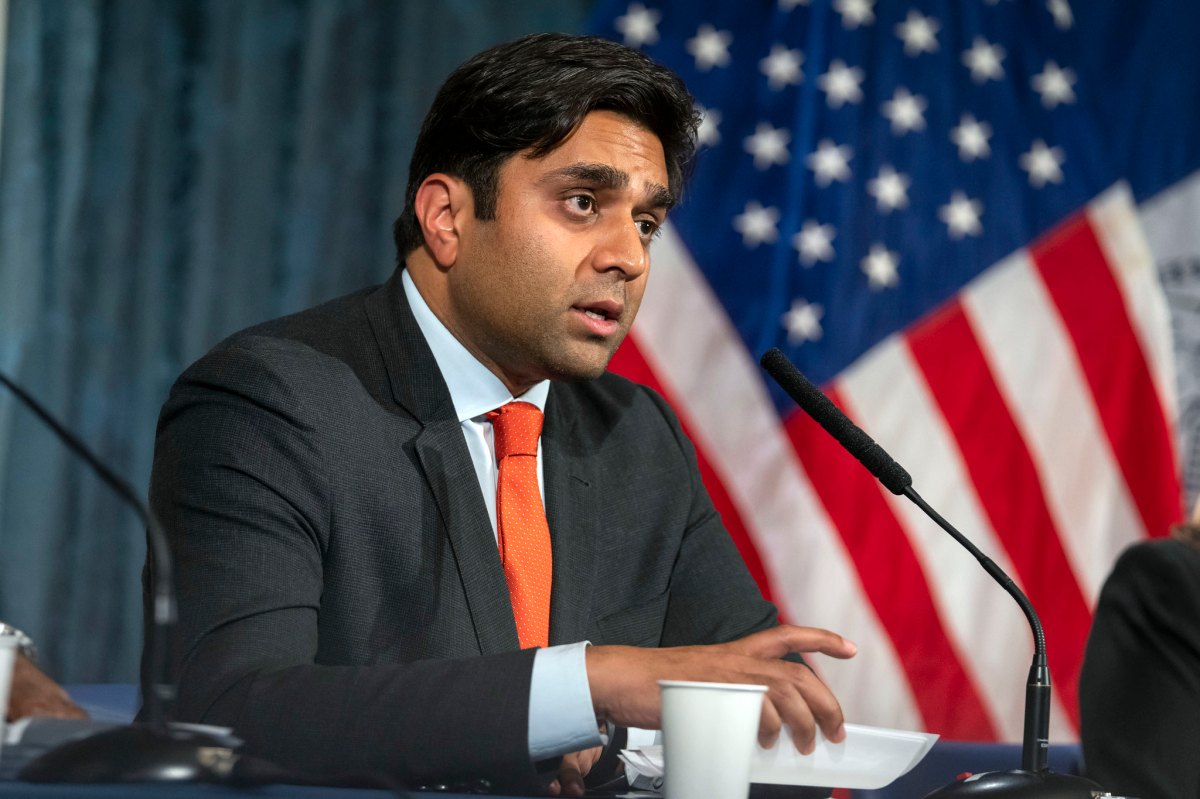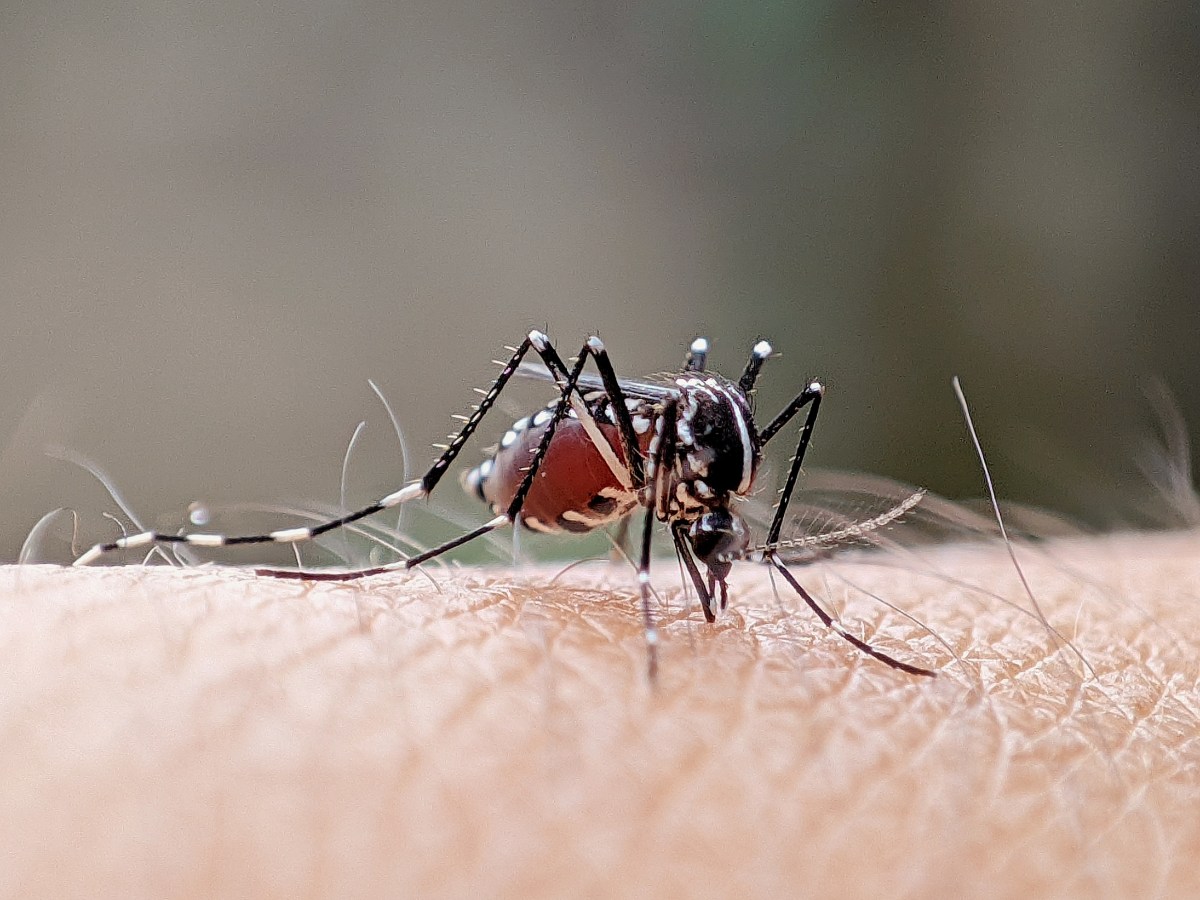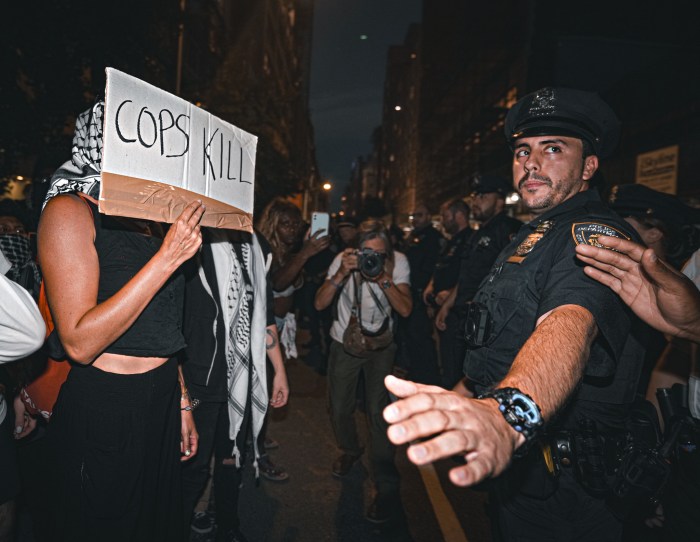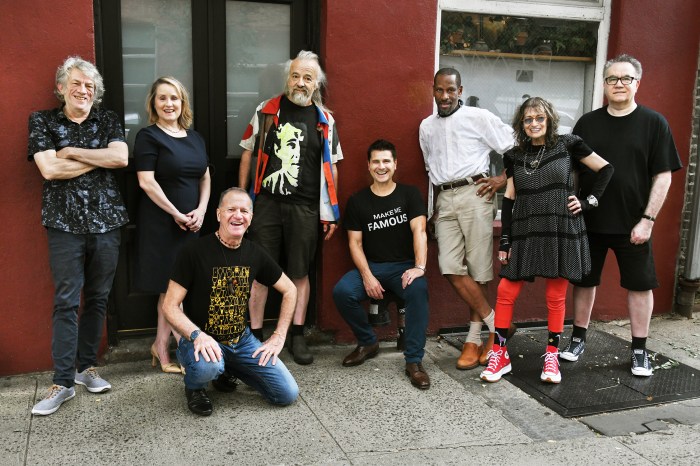By Judith Stiles
When 11-year-old Travis Wantchekon of Greenwich Village stepped out on the soccer field to compete against a team from Maryland, the opponent he was marking on the throw-in towered over him a good 10 inches, and the manly body looked like a daunting 140 pounds. Even more overwhelming was the fact that if Wantchekon could beat that player to the ball, there were at least five other giants on the field from the Potomac Fusion, a team that was ranked number one in the country in the U-12 (under-12-years-old) age bracket.
However, this did not stop young Wantchekon from playing his heart out the entire game in sweltering 95-degree weather, during the 2005 U.S. Youth Soccer Region 1 Championship games, held in Virginia over the Fourth of July weekend. This was a championship that his New York City team from the Blau Weiss Soccer Club had worked hard to qualify for all year, and Wantchekon was not about to throw in the towel because he was outsized. With his own natural athleticism, speed and game smarts, midfielder Wantchekon shocked the fans, because he kept winning the ball against the behemoths, never giving up, with a perseverance that was inspiring to his teammates.
Under the leadership of coach Miguel Brunengo, this scrappy, but very skilled city team had been a winning machine all year, beating every team from eastern New York in their age group to win the coveted 2005 State Cup last June. B.W. Gottschee club president Ben Boehm has been quick to point out that it was no accident that Gottschee sent an unprecedented eight teams to compete in the State Cup finals, when hundreds of clubs in the region rarely have the honor of sending one team. “Our teams train very hard and it is old-fashioned perspiration — hard work, that they made it to the State Cup finals,” said Boehm. Wantchekon and his teammates practiced three times a week, logging over 60 games last year.
Christian Johnson, Nathan Miller and Wantechekon live in Lower Manhattan but they battle rush-hour traffic to get to practice in Middle Village, Queens, three times a week in order to train with their team. By the end of their season, soccer coaches all over the state were buzzing about these teams, and with pencils and clipboards in hand, they tried to figure out how one club could propel so many athletes to such success without big bucks behind the program. Part of the answer lies with great coaches and strong club leadership, where the president Boehm attends almost all the games and knows the stats and the strengths of every player and every team. It also helps that many of the players are devoted to soccer and could be appropriately described as “soccer nuts.”
Wantchekon and his goalie, teammate Johnny O’Hara, are walking encyclopedias of soccer information, both historical and current. In listening to them fire off soccer facts in the backseat of the car on the way to practice, they could win any trivia contest on “Fox Football Friday,” a show devoted to worldwide soccer analysis.
All of Wantchekon’s family are soccer enthusiasts, originally from the Republic of Benin, where soccer is the most popular sport. His mom, Catherine Kossou, a financial manager at New York University, admitted, “I think it is great Travis plays soccer all 12 months of the year, but I wouldn’t mind if played a little more trombone outside of school.” His father, Leonard Wantchekon, a professor of political science at New York University, missed the Regionals because he was giving seminars in Europe but he phoned in daily for extensive game reports.
While riding back to the hotel after the second Regionals game, Wantchekon and his teammate Johnson, of Sydney, Australia, chatted about what they called the “sacrifices they make” to play soccer. They can’t play sports such as ice hockey and cricket because the schedule conflicts with soccer practice, and they often are found doing homework late into the night after practice ends at 8 p.m. “It’s worth it, though, because the kids on this team are nice, and I love soccer,” said Johnson.
Wantchekon’s team played three games at the Regionals in Virginia and as Alan Miller, father of midfielder Nathan put it, “They had a good variety of game experiences, because the first game against Pennsylvania they won 2-0, the second game against Potomac Fusion they got womped 5-0, and the third game against Maine they won 9-0.”
With names such as Caraccioli, Wantchekon, Bzivkiewicz, O’Hara, Gallego, Ushyarov, Buckley, Naula and Altomarino, it was no wonder that many languages were heard on the sidelines of the Regionals games (even a bit of cursing in Gaelic). Wantchekon’s team has often been described as a “United Nations” team boasting first- and second-generation families from Ireland, Russia, Poland, Colombia, Australia, Italy, Mexico, Republic of Benin in West Africa, and even players from that faraway place called Brooklyn. They are a petri dish of human relations, in which their contagious love of the game has caused cultural differences to pale among them, at a tender age, long before prejudice can become calcified in adulthood.
These players are boys now, but in a blink, in a decade or so they will be men, and perhaps one of them, maybe Wantchekon will be a representative at the United Nations where he can teach his colleagues a thing or two about teamwork, good sportsmanship, perseverance and everything he is learning on the soccer field right now.





































